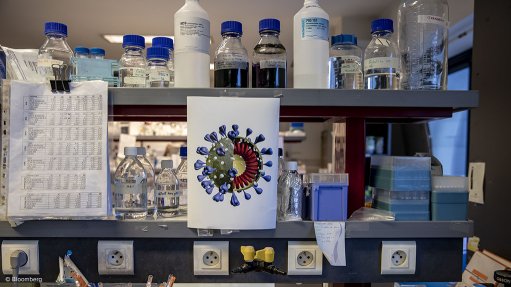
Photo by: Bloomberg
World Economic Forum (WEF) head of shaping the future of health and healthcare Arnaud Bernaert said a decline in coronavirus (Covid-19) vaccine confidence was a remarkable and sad trend as the world moves closer toward a possible vaccine roll-out.
A recent WEF/Ipsos global survey revealed that the number of people willing to take a Covid-19 vaccine when it is rolled out has dropped to 73%.
Fifteen countries were polled, with ten of the countries showing a drop in vaccination intent, specifically China, Australia, Spain and Brazil.
This comes in the face of progress made by numerous pharmaceutical companies working on vaccine trials and international organisations such as the World Health Organisation (WHO), Gavi and CEPI working to ensure that those most in need receive a potential vaccine.
“Data from three months ago revealed that across 15 countries, 77% of adults strongly or somewhat agreed with the statement ‘if a vaccine for Covid-19 were available, I would get it’. At the time, the shortfall in vaccine confidence was significant enough to be seen to compromise the effectiveness of seeing an end to the pandemic. Now, this figure has dropped,” Bernaert said.
The foremost reason, given by 34% of respondents, was the worry about vaccine side effects, while 33% said clinical trials were moving too fast.
At least 10% fear that a vaccine wont be effective, another 10% are against vaccinations and 8% of respondents do not believe they will get the virus.
In 2019, the WHO has stated that vaccination hesitancy was one of the top 10 threats to global health and would affect businesses and economies.
“Public-private cooperation is critical to building trust in next steps. While the numbers in this latest study show there is more confidence than not in a Covid-19 vaccine, the rising hesitancy is material and highlights that a vaccine won't work if people don’t take it,” Bernaert said.